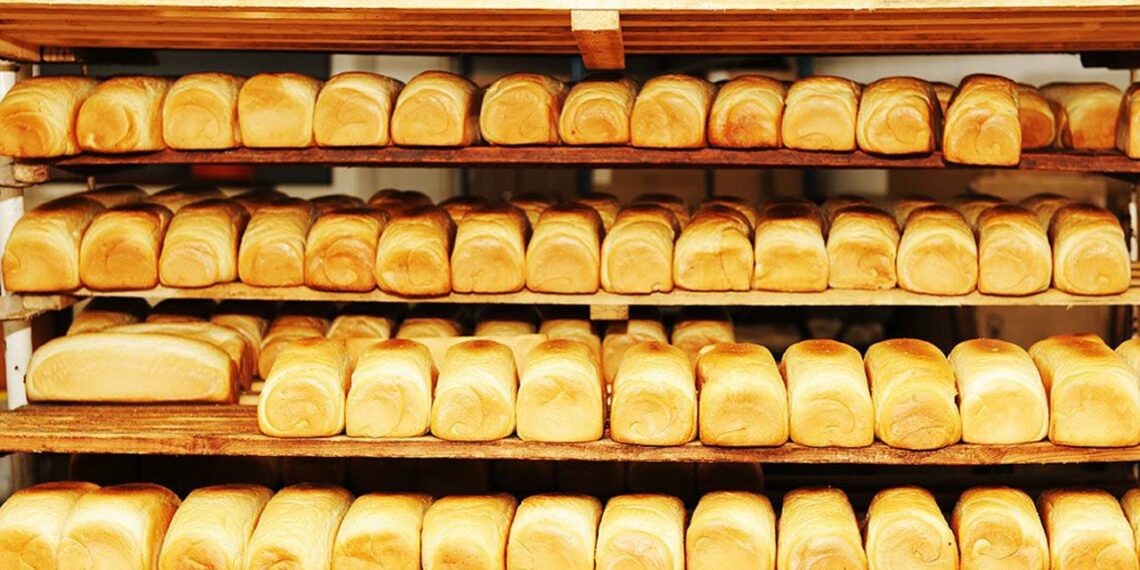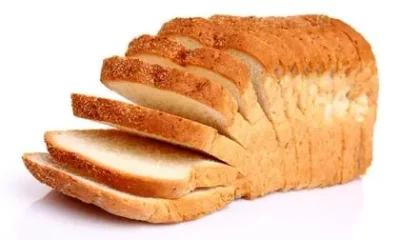Nigerian consumers of bread will in the coming days pay more for bread as bakers in some states have announced price hikes to cover the high cost of ingredients.
Kogi Master Bakers said on Sunday they were resuming production after weeks of strike, but will increase prices of their products.
The association had on Wednesday joined the nationwide strike declared by its national body to demand government intervention regarding prices of materials used in bread production.
“Although the Federal Government is yet to respond to our pleas and demands, we are satisfied that we have at least sent a message hoping for a positive result,” Gabriel Bamidele-Adeniyi, Chairman, Association of Master Bakers and Caterers of Nigeria, Kogi Chapter, said.
“Unfortunately, as we resume production, July 25, prices of bread will definitely increase by 20 per cent.
“A bread of N200 will cost between N240 and N250, that of N500 will cost N600, that of N600; N750, that of N700 will cost N880 and that of N800; between N980 and N1, 000 respectively
“We want the public to know that the new increment in prices of stable bread is not our making but that of the increase in the prices of commodities we use in bread production.
“We want the government to see to it that prices of yeast, sugar and flour being imported are drastically reduced so that only three companies have the licence to import them.
“Unfortunately those three firms are monopolizing the prices of sugar, yeast and flour to the detriment of bakers in Nigeria,” he lamented.
Bamidele-Adeniyi appealed to the government to ensure that the sugar company in Bashuta commenced production and equally open the opportunity for members to obtain the licence to import and obtain loans for better bread production.
Bakers in Abuja said last week they had decided not to take part in the strike as they preferred to engage with the government to find solutions. They warned that they would suspend production, however, if that failed.
In Cross River, bakers said they were increasing prices and reducing production quantities amid high cost of ingredients and production.
This was disclosed by a leader of the state Master Bakers group, Thomas Odey, in an interview with NAN on Monday.
Odey said the Cross River master bakers did not join the national body in their two weeks’ withdrawal of service but resolved to increase price and reduce the quantity of production to prevent wastage.
The Director of Canaan Delight Bakery Nigeria Limited said that a withdrawal of service was not good for the system as a lot of average Nigerians would suffer because bread was a staple commodity in the country.
“The planned increment is not even enough, this is because the price of every means of production has increased from condiments to diesel and all other raw materials.
“This is a global issue that is not peculiar to Nigeria or materials for baking alone but the price of every foodstuff has increased significantly.
“In my contacts with big flour mills in the country, they will tell you the Russia/Ukraine crisis, exchange rate and the issue of sourcing foreign currency are posing major challenges and increasing the price of wheat flour,” he said.
Speaking further, Odey noted that the use of cassava and potato flour was an option but the challenge was that the specific species of cassava needed for good flour production was not sufficient in Nigeria.
He said the normal cassava that was common in Nigeria was bitter when used to produce flour while potato cultivation was still largely at subsistence level, making production insufficient in the country.
“In my training with Flour Mill, I discovered that they mixed cassava flour with wheat to get what they used but the kind of cassava they used was a specie we need to develop in large quantities.
“Potato flour is also good and can be combined with wheat flour but the challenge is that it is not enough in the country for industrial purposes and is a seasonal crop.
“Nigeria needs to channel its resources and mindset to developing agriculture and stop paying lip service because if we continue to depend on the importation of foreign raw materials to salvage our few industries, it will never help us,” he asserted.
Last week, residents of Enugu decried the four-day warning strike embarked upon by bread bakers, as the current price of the commodity had become unaffordable.
Some of the residents, who spoke to NAN in Enugu on Sunday, said the warning strike had affected many bread consumers because it ended up making the price of the commodity to further increase.
Some bread sellers said there had been an increase in price of bread by 30 per cent following the strike by the Bakers Association of Nigeria.
A bread seller, Samson Igwe, said that the price would further increase across the state after the warning strike due to the high cost of raw materials used for baking bread.

 News3 years ago
News3 years ago
 Entertainment2 years ago
Entertainment2 years ago
 News3 years ago
News3 years ago
 Privacy3 years ago
Privacy3 years ago
 Sports2 years ago
Sports2 years ago
 Entertainment2 years ago
Entertainment2 years ago
 News3 years ago
News3 years ago
 Opinion3 years ago
Opinion3 years ago





